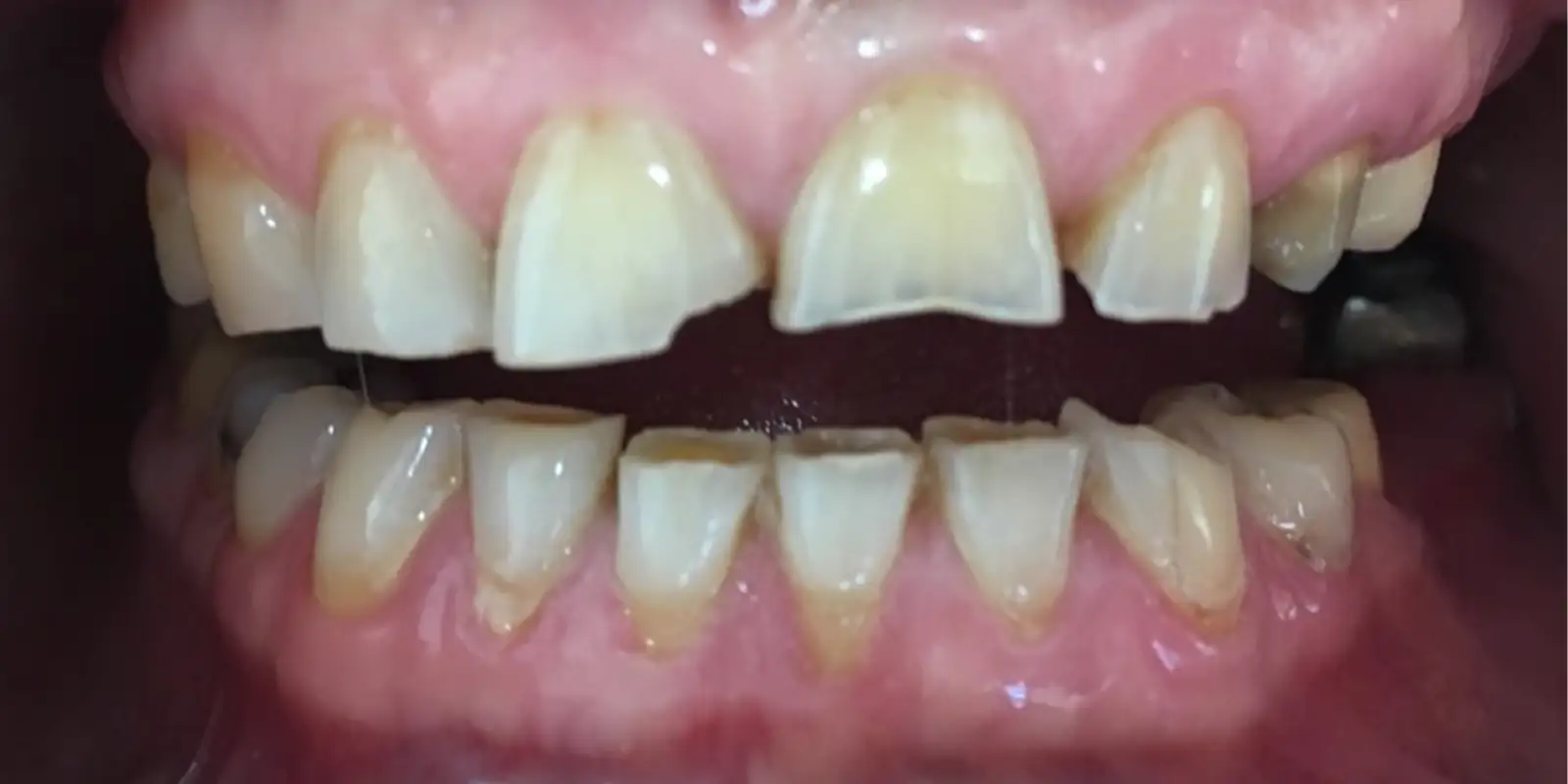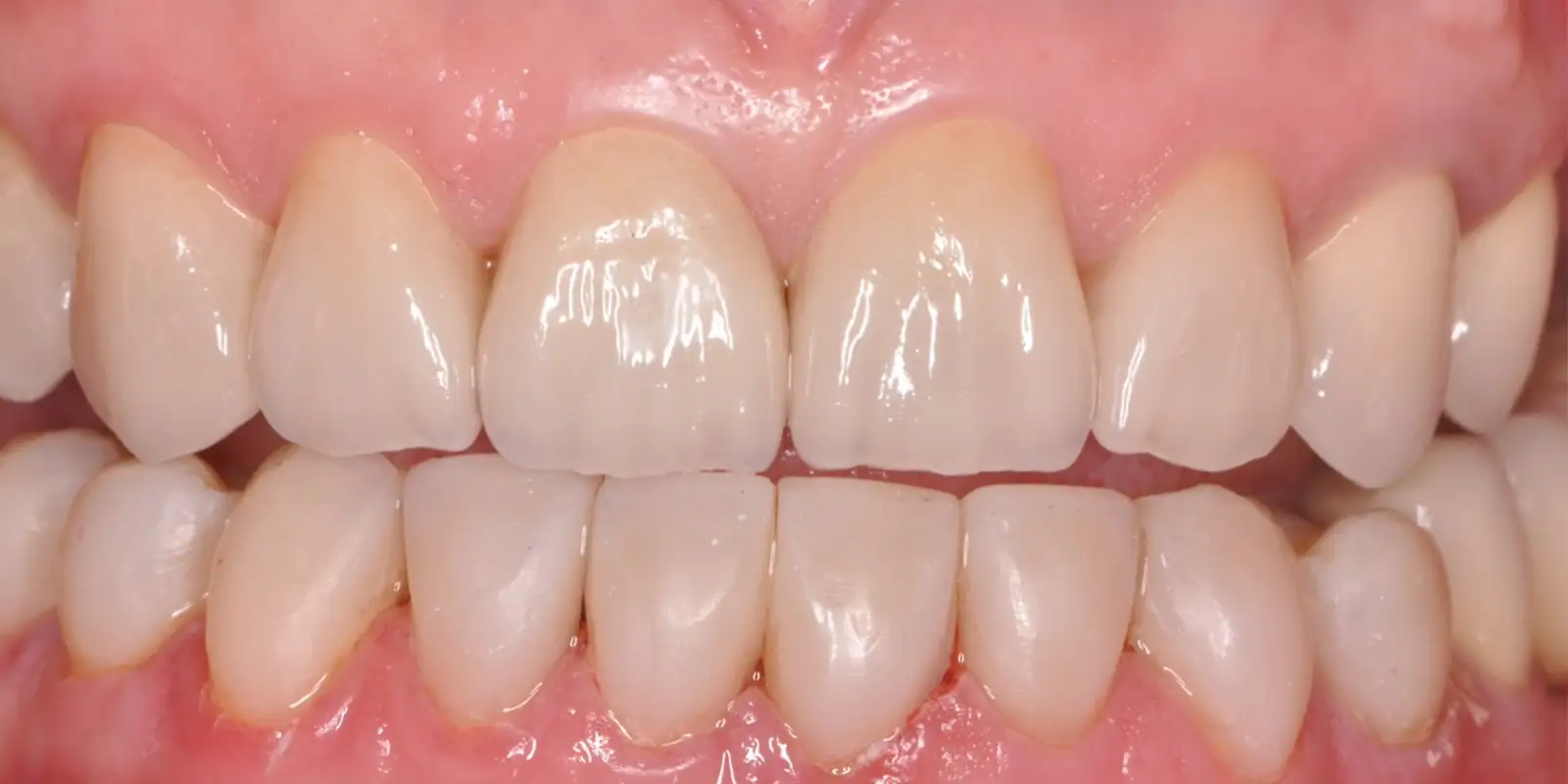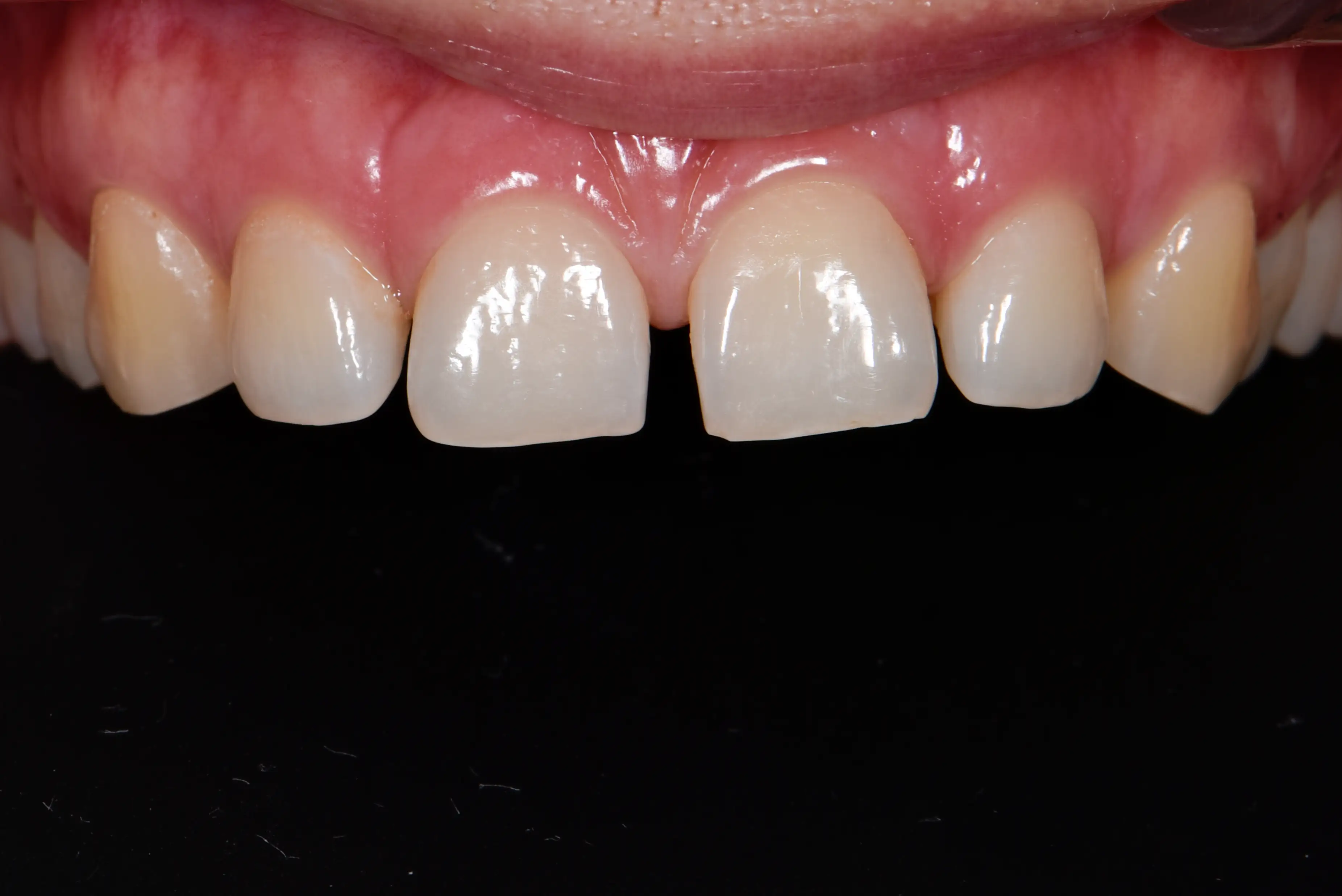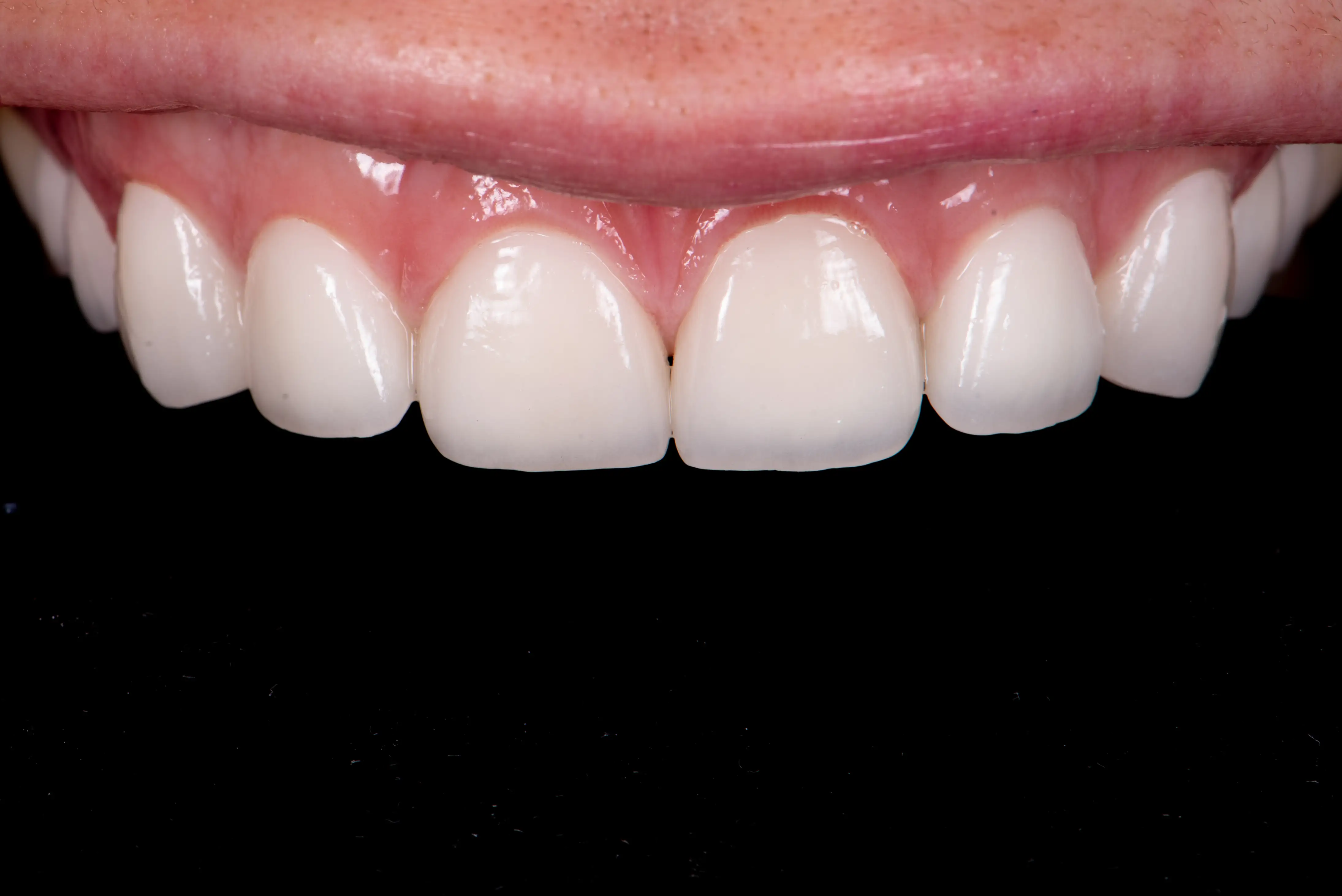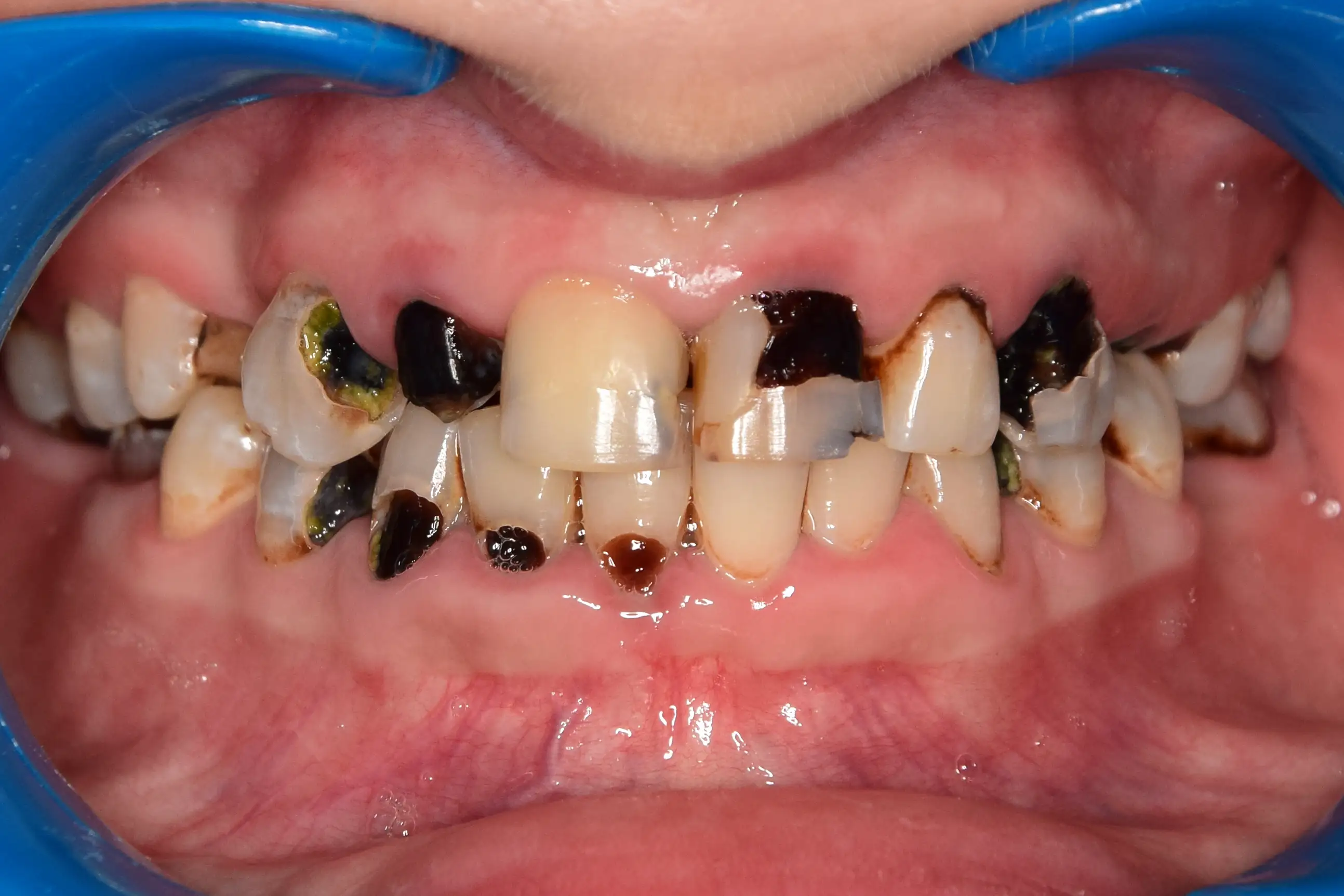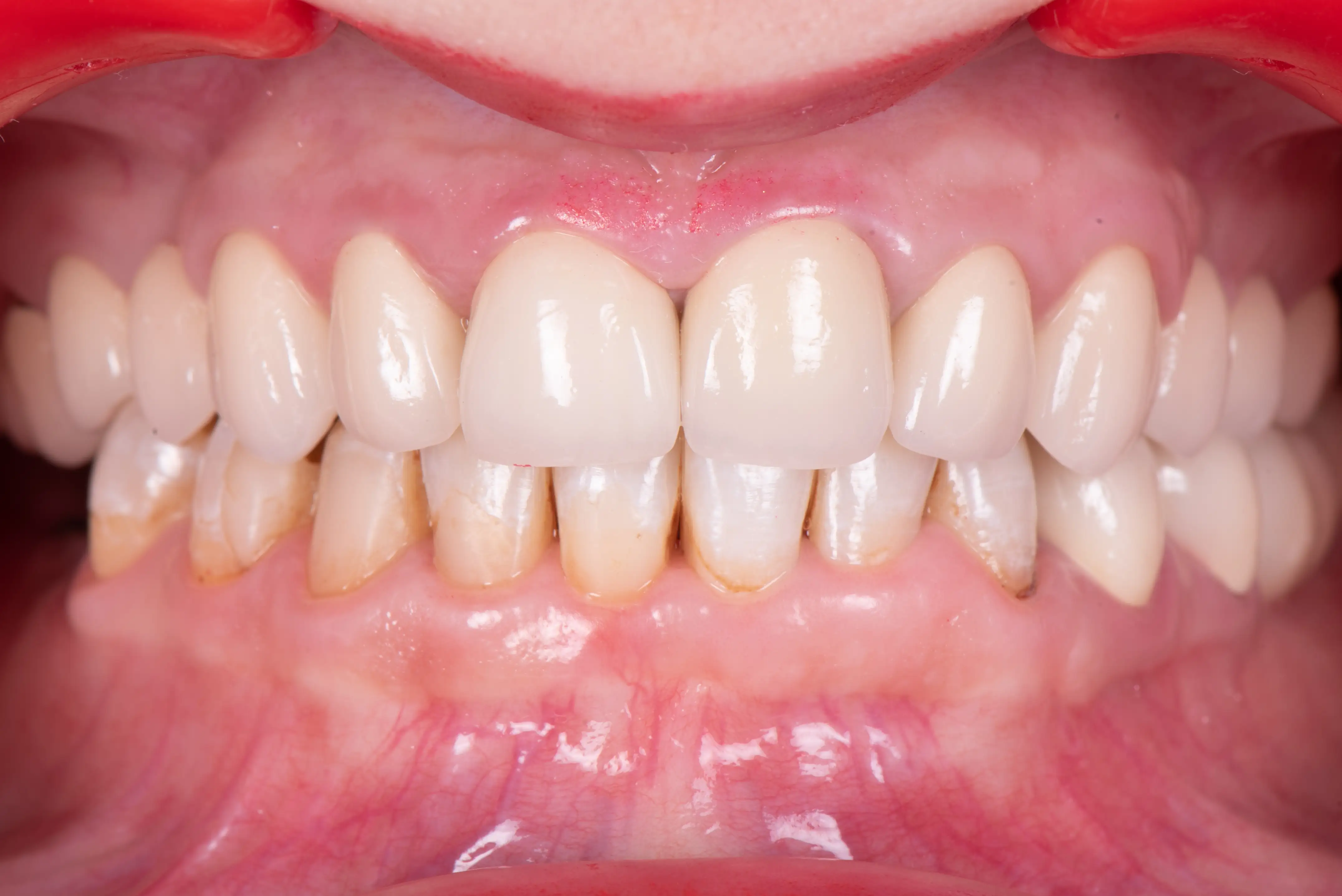Aesthetic solutions
Depending on your clinical case, there are many methods to restore damaged teeth: direct restorations, veneers or dental crowns.
Our aesthetic solutions preserve a natural appearance and volume of your teeth. Without aggressive grinding, we will improve the aesthetics and preserve the function of the affected teeth.

The secret of perfect teeth
Aesthetic smile is an indicator of well-being, social status and last but not least, health. But nature is not as generous with everyone, so the shape, size or color of the teeth is often imperfect. Also, during life, various pathologies can further affect the teeth, influencing the function and aesthetics of the teeth.
Some people experience embarrassment and insecurity due to certain aspects of natural teeth. Today's technologies offer multiple possibilities to correct any imperfections. Any individual case can be refined by implementing the right solution.
Solutions for a flawless smile
Direct restorations are especially suitable for a quick aesthetic restoration. The result can be obtained during 1-3 visits to the dentist.
They are recommended in cases where it is not necessary to restore a large volume of tooth and the risk of requesting the restored teeth is minimal. Correction and maintenance over time is simple and not expensive.
Clinical cases
Dental veneers have many advantages: they are easy to maintain, have an extraordinary adhesion to the tooth and are similar to the natural tooth in terms of hardness, abrasiveness and aesthetics. The wide range of colors allows the creation of natural, durable and individual restorations, according to the patient's preferences.
Digital manufacturing technologies are minimally invasive to natural tissue.
Clinical cases
The dental crown covers the tooth completely. They require more invasive preparation and are most often indicated in cases of massive coronary destruction.
They can also be indicated in the treatment with dental bridges as a support element for the recovery of one or more lost teeth.
The old crowns will be replaced with new ones.
Clinical cases
Test drive your new smile
The first step to changing your life
Restoration or crown?
The choice depends on the patient's clinical situation. For example, if a tooth has a significant loss of volume as a result of a pathological process and its restoration can lead to a fracture due to the presence of bruxism, we recommend zirconium crowns, which will provide the necessary aesthetics and strength.
Types of restorations
Suitable for treating small and medium coronary defects. In cases where increased hardness is not required.
They often do not require tissue sanding, can be done quickly and are easy to repair.
1-2 visits
Preferred for changing the color of the tooth, closing the interdental spaces, changing the shape or size of the tooth.
The most aesthetic restorations. Being made of clean ceramics, they are more fragile than restorations made of pressed ceramics.
7-14 days
Suitable for restoring a tooth that has changed color or for the lateral area, where greater hardness is needed.
Requires minimal sanding, is aesthetic, durable and can be customized to the patient's requirements.
7-14 days
Most often used for bridges to restore lost teeth, as crowns in the case of teeth with metal pivots or in cases where increased hardness of dental restorations is required.
Applied for both frontal and lateral teeth restoration. They are quite hard to make dental bridges and can easily mask discolored teeth. Requires more invasive grinding.
7-14 days
| Composite restorations | Integral ceramic veneers | Pressed ceramic veneers | Zirconium crowns |
|---|---|---|---|
| Suitable for treating small and medium coronary defects. In cases where increased hardness is not required. | Preferred for changing the color of the tooth, closing the interdental spaces, changing the shape or size of the tooth. | Suitable for restoring a tooth that has changed color or for the lateral area, where greater hardness is needed. | Most often used for bridges to restore lost teeth, as crowns in the case of teeth with metal pivots or in cases where increased hardness of dental restorations is required. |
| They often do not require tissue sanding, can be done quickly and are easy to repair. | The most aesthetic restorations. Being made of clean ceramics, they are more fragile than restorations made of pressed ceramics. | Requires minimal sanding, is aesthetic, durable and can be customized to the patient's requirements. | Applied for both frontal and lateral teeth restoration. They are quite hard to make dental bridges and can easily mask discolored teeth. Requires more invasive grinding. |
| 1-2 visits | 7-14 days | 7-14 days | 7-14 days |
Cost of treatment
Tooth restoration is done in several stages. If you want to completely transform your smile, we can make a planning and a provisional layout to preview your future smile. You can even wear the temporary model for a few days to be able to test both the new aesthetic appearance and its functionality.
This stage involves a thorough clinical examination of the teeth and the aesthetic appearance of the smile.
Mock-up is applied without touching the teeth.
If the layout is accepted, the fingerprint for the permanent works is obtained. Provisional work is set.
